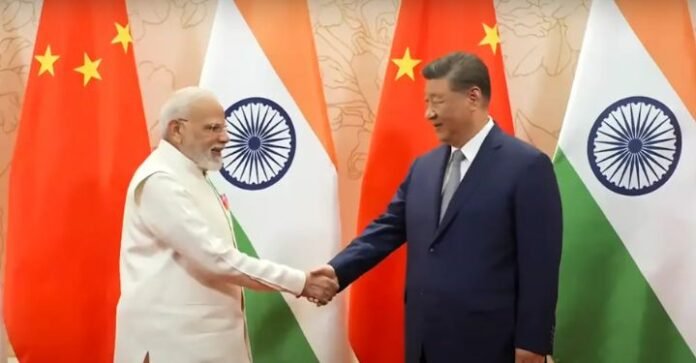In a landmark meeting on August 31, 2025, Indian Prime Minister Narendra Modi and Chinese President Xi Jinping engaged in crucial bilateral talks on the sidelines of the Shanghai Cooperation Organisation (SCO) summit in Tianjin, China. This was their first formal bilateral meeting in over seven years, and it focused on two pivotal issues—maintaining peace along the Line of Actual Control (LAC) and forging a joint front against terrorism.
The meeting marked a significant thaw in relations between the two Asian giants, which had been strained since the Galwan Valley clash in 2020 and the prolonged military standoff that followed. While previous interactions between the leaders occurred informally or at multilateral events, this summit marked a formal and structured step forward.
Peace on the Border: A Precondition for Progress
During the dialogue, both leaders emphasized that peace and stability at the border remain the essential foundation for any forward movement in the bilateral relationship. Modi noted the importance of recent confidence-building steps, such as mutual disengagement in friction points and consistent military-to-military dialogue.
He reiterated India’s stand that the border situation must be handled with “mutual respect and sensitivity”, and emphasized that differences must not turn into disputes. President Xi responded with similar conciliatory language, stating that “the dragon and the elephant must dance together rather than fight.”
Both sides reaffirmed the need to continue talks under the Special Representatives mechanism, aimed at resolving the complex boundary issues peacefully. Diplomatic sources also revealed that both leaders agreed to expedite disengagement in remaining friction areas and explore confidence-building mechanisms to prevent future incidents.
The fact that this meeting took place, despite years of tension, indicates a renewed strategic willingness on both sides to stabilize relations in the broader interest of regional peace and economic growth.
Fighting Terrorism: Shared Concerns, Shared Solutions
Another significant area of convergence was the need for unified efforts against terrorism. Modi strongly advocated for global cooperation in dealing with terrorism, particularly state-sponsored terror. He urged China to support India’s long-standing push for the Comprehensive Convention on International Terrorism at the United Nations—a proposal that has faced opposition from certain quarters over definitional issues.
Xi expressed his commitment to working within the SCO framework to eliminate terror networks and prevent the misuse of technology and financial systems by terrorist groups. The leaders agreed that no double standards should exist when it comes to identifying or combating terror threats.
This anti-terror convergence gains significance given China’s close ties with Pakistan, which India accuses of harboring terrorist organizations. Though differences persist, both nations have signaled a shared interest in preventing the spread of extremism in the region—particularly in the wake of growing instability in Central Asia.
Economic and Multilateral Cooperation
While the main thrust of the discussion centered on strategic stability, both leaders also acknowledged the economic dimension of their relationship. Despite tensions, China remains one of India’s largest trading partners, although the trade imbalance continues to concern New Delhi.
India called for greater market access for its goods in China and fairer trade practices. In response, China agreed to explore fresh avenues of investment cooperation and support Indian participation in regional supply chains.
At the multilateral level, Modi extended an invitation to Xi to attend the BRICS summit in India in 2026, which Xi accepted. Both leaders expressed their intent to strengthen coordination on global issues such as climate change, energy security, and digital governance.
The two sides also agreed to expand people-to-people exchanges, including the resumption of tourist visas, direct flights, and religious pilgrimages, including the Kailash Mansarovar Yatra.
A Calculated Reset, Not a Full Rapprochement
While the meeting marked a positive shift, analysts warn that structural challenges remain. The underlying mistrust between the two armies, unresolved boundary claims, and competing geopolitical interests in the Indo-Pacific make a full normalization unlikely in the short term.
However, the Modi–Xi summit could be seen as a “calculated diplomatic reset” rather than a wholesale reconciliation. It opens the door to further discussions and lays down a roadmap for cooperation without capitulation—particularly crucial as both countries navigate a shifting global order.

